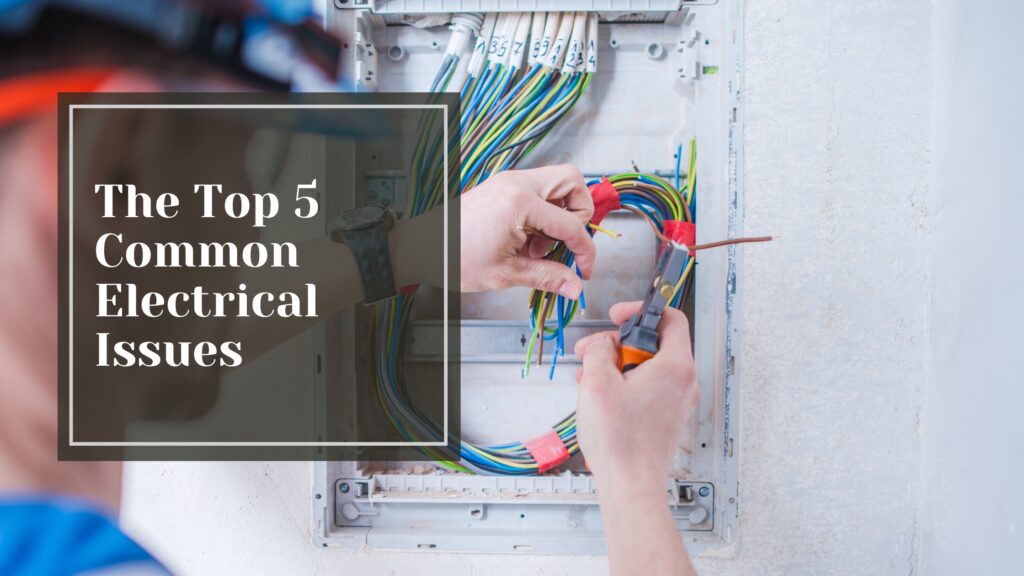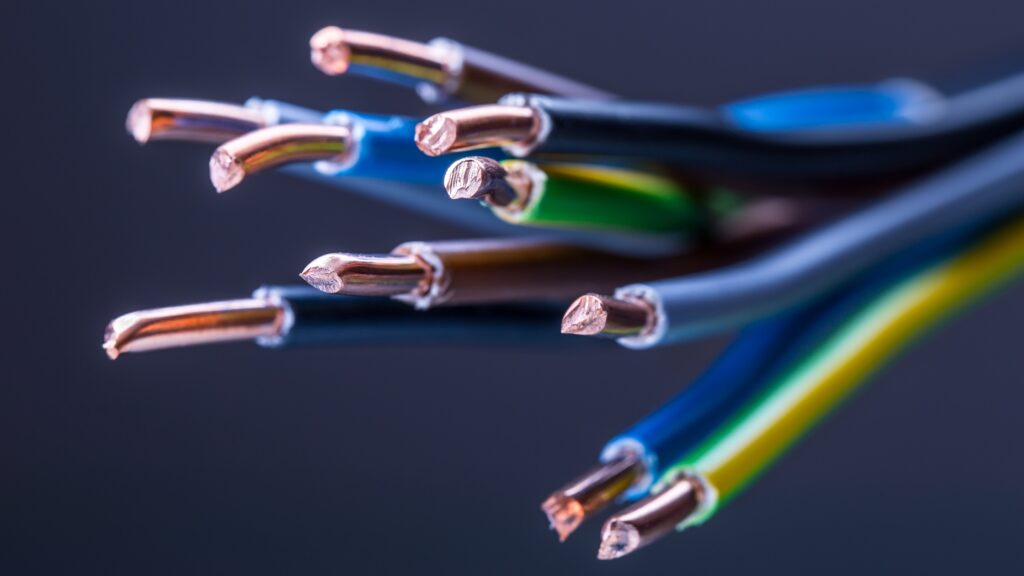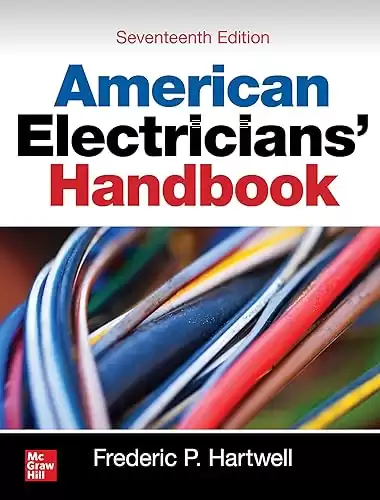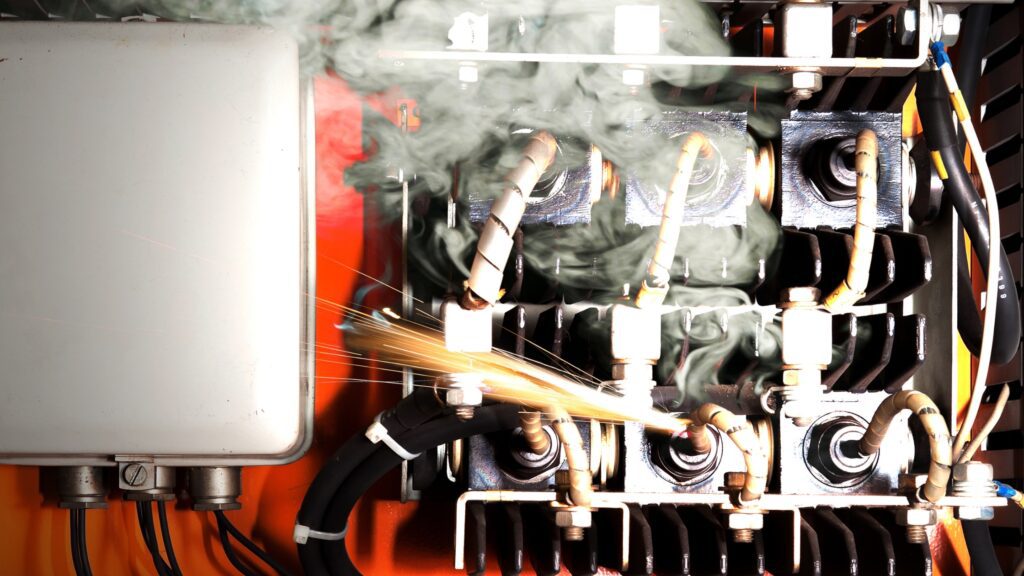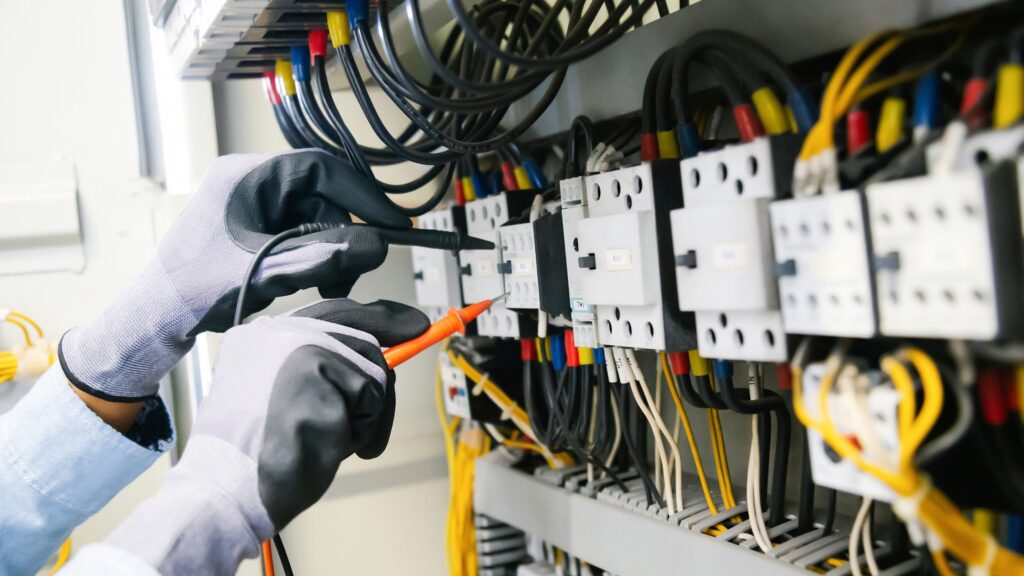Have you ever had your lights flicker ominously before or your breakers trip without any apparent reason? You are not alone. Electrical bugs often infiltrate even the most well-heeled homes. Nonetheless, do not start seeing dollar signs or jumping to worst-case scenarios just yet. Many electrical problems are more common than you might suspect and less scary. There is a good chance that the issue you are grappling with is one of the most frequent five electrical hiccups experienced by homeowners. Here at Talking Tradesmen, let us look into these pesky problems and find out how they can help you determine when it is time to call in the pros.
Table of Contents
ToggleFaulty Wiring and Loose Connections
When it comes to home electrical issues, faulty wiring, and loose connections are some of the known common culprits. Problems range from minor inconveniences to serious safety risks hence they need urgent attention.
Signs of Faulty Wiring
Here’s what may indicate faulty wiring:
- Flickering or dimming lights.
- Often tripping the circuit breaker.
- Burning smells near outlets or switches.
- Discolored wall plates are warm to the touch.
The Dangers of Loose Connections
Outlets, switches and junction boxes may not be tightly connected. This can happen due to wear and tear, improper installation, or even pests nibbling at wires. The outcome of these issues may be:
- Higher electrical resistance levels.
- Overheating.
- Possible fire hazards.
DIY or Call a Pro?
Despite the allure of fixing electrical problems yourself, it is often advisable to contact a licensed electrician. They have the necessary tools and expertise to safely diagnose and repair wiring. However, you could practice some preventive measures:
- Avoid overwhelming circuits
- Apply surge protectors
- Have periodic electrical inspections
Overloaded Circuits and Tripped Breakers
Ever felt like your home’s electricity supply was playing a winking game without your consent? You are not alone. Overloaded circuits and tripped breakers are two of the most common electrical issues faced by homeowners.
The Culprit: Too Much Power Demand
Just picture this: It’s a cold winter evening; you have turned on the heater full blast and switched your TV volume to the highest level possible while warming up some hot cocoa in a microwave oven. All of sudden poof – darkness! Your circuit breaker has just given up!
Why? Simple. You’re asking too much from a single circuit. Each electrical circuit in your home has a limit to how much power it can safely handle. When you exceed that limit, the breaker trips to prevent overheating and potential fire hazards.
Signs of an Overloaded Circuit
- Keep an eye out for these red flags:
- Flickering or dimming lights
- Warm or discolored wall plates
- Burning odors from outlets or switches
- Frequent circuit breaker trips
The "American Electricians' Handbook, Seventeenth Edition" is a practical, on-the-job resource packed with essential information on current energy-efficient technologies, safety methods, and industry standards. With detailed explanations, diagrams, and calculations, it's an indispensable tool for electricians at all skill levels.
Prevention is Key
To avoid overloading your circuits, spread out your high-wattage appliances across different circuits. Consider upgrading your electrical panel if you find yourself constantly resetting breakers. Remember, a little electrical savvy goes a long way in keeping your home safe and well-lit.
Ground Faults
Ever felt a slight tingle when touching an appliance? That’s likely a ground fault, and it’s no laughing matter. Ground faults occur when electricity strays from its intended path, potentially causing shocks or fires.
What Causes Ground Faults?
Ground faults often stem from damaged insulation or faulty wiring. Moisture is a common culprit, especially in areas like kitchens and bathrooms. Old or worn-out appliances can also be to blame.
Spotting the Signs
Be on the lookout for:
-
- Frequent circuit breaker trips
- Slight shocks when touching appliances
- Burning smells near outlets
- GFCIs that won’t reset
Prevention and Protection
Those people who take preventive measures against electrical risks are said to have installed Ground Fault Circuit Interrupters (GFCIs). They can detect when the electric current is abnormal and then immediately cut the power off. They should be a must-have in wet places like bathrooms.
One of the best ways to avoid fires caused by electrical faults is through regular electrical inspections. Another thing you need to remember is checking appliances and cords for signs of wear and tear.
Electrical Surges
There may have been instances where your lights were flickering or your appliances went on and off abruptly. Electrical surges could be causing it, and they can do more than just annoy – over time they might end up spoiling your electronics or other home appliances.
What Causes Surges?
Some common causes include:
- Lightening strikes (the most dramatic but least frequent cause)
- The power grid
- Poorly done wiring in a residence
- Powerful electrical devices switching on and off
Master the fundamentals of electrical systems with 'Delmar's Standard Textbook of Electricity.' Ideal for journeyman electricians, this concise guide covers essential principles for installing, repairing, and troubleshooting electrical components.
The Impact of Surges
While a TV will not get fried due to a single surge, repeated smaller ones can eventually wear out the circuitry in your devices. It’s like death by a thousand cuts for electronics.
Protecting Your Home
Do not panic; you have options when it comes to surges! Here are some protective measures:
- Buy whole-house surge protectors
- Have point-of-use surge protectors for expensive consumer electronics
- Unplug critical equipment during storms
Light Flickering and Dimming
Have you ever noticed your lights dancing around a bit, flickering or dimming? Well, it is not only irritating but could also mean an electrical problem that needs to be addressed. Let’s get some clarity about this common issue.
Causes of the Flicker
Why could my lights be acting so funny?
- Loose connections: On several occasions, it can be as simple as the bulb being not screwed in tightly enough. Alternatively, there could be loose wiring within your electrical system.
- Voltage fluctuations: The power supply within your house may not at times remain steady thereby causing the light to flicker or even become brighter intermittently.
- Overloaded circuits: If you are using too many appliances connected to one circuit when high power consumption gadgets come on, then lights can dim.
When to Call a Pro
Despite a flickering light bulb appearing to be just a minor inconvenience, sometimes it should not go unattended. If you have checked for any loose bulbs and nothing seems to work out, then it is time for an electrician. They can look for more severe problems like faulty wiring or issues with your home’s panel board that provides electricity.
The Top 5 Common Electrical Issues
As a result, the aforementioned are the top five electrical demons that could be hiding in your house. Although some of these problems are not as disturbing, others can be very dangerous if they are not attended to on time. Keep in mind that with electricity it is always better safe than sorry. A licensed electrician can quickly diagnose and fix these common issues, giving you peace of mind and a safer home. Keep an eye out for warning signs, address problems early, and you’ll be well on your way to a shock-free household.
Frequently Asked Questions
What Are The Top 5 Common Electrical Issues In Homes?
The top five common electrical issues in homes are faulty wiring, overloaded circuits, ground faults, electrical surges, and flickering lights. These problems can range from minor inconveniences to serious hazards, so it’s important to address them promptly.
What Are The Signs Of Faulty Wiring?
Signs of faulty wiring include flickering or dimming lights, frequent circuit breaker trips, burning smells near outlets, and warm or discolored wall plates. These indicate an electrical issue that needs urgent attention to prevent safety risks.
How Can I Prevent Overloaded Circuits?
To prevent overloaded circuits, spread high-wattage appliances across different circuits, avoid using too many devices on a single circuit, and consider upgrading your electrical panel if breakers trip often. Regular inspections can also help.
What Causes Electrical Surges And How Can I Protect My Home?
Electrical surges can be caused by lightning strikes, power grid issues, faulty wiring, or large devices turning on and off. Protect your home by installing whole-house surge protectors and using point-of-use protectors for sensitive electronics.
When Should I Call A Professional Electrician?
Call a professional electrician if you notice frequent electrical issues like circuit breaker trips, flickering lights, burning smells, or if you’re unsure about handling electrical problems yourself. It’s always safer to rely on expert help.

